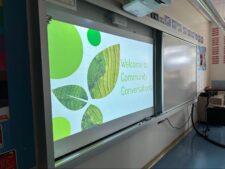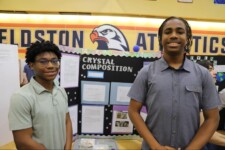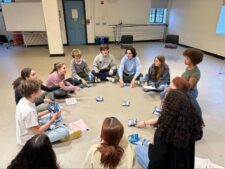As new technology develops and debuts at a lightning speed, educators at the Ethical Culture Fieldston School are re-examining how these tools and a growing Internet landscape impact students in the classroom and beyond. Faculty and staff from each division, as well as a student representative, shared how the teaching of ethics relates to students’ understanding of social media and digital citizenship.
Ethical Culture
Starting in 4th Grade at Ethical Culture, we teach digital citizenship by framing social media interactions as extensions of in-person relationships. Students learn to differentiate between acquaintances and strangers and identify what information is appropriate to share based on that relationship. We emphasize that core values, like kindness, care, and respect, must be applied in digital spaces. We provide practical applications of lessons taught through role-playing exercises where students practice handling common ethical dilemmas, such as how to decline a friend’s request to post a photo of them online, or how to ask for permission before posting a photo.
Additionally, we analyze the privacy policies of various social media platforms and their age restrictions (emphasizing that most social media platforms prohibit users under the age of 13), and discuss the persistence of their digital footprints.
— Alexis Caudle, Ethics and Technology Lead, Ethical Culture
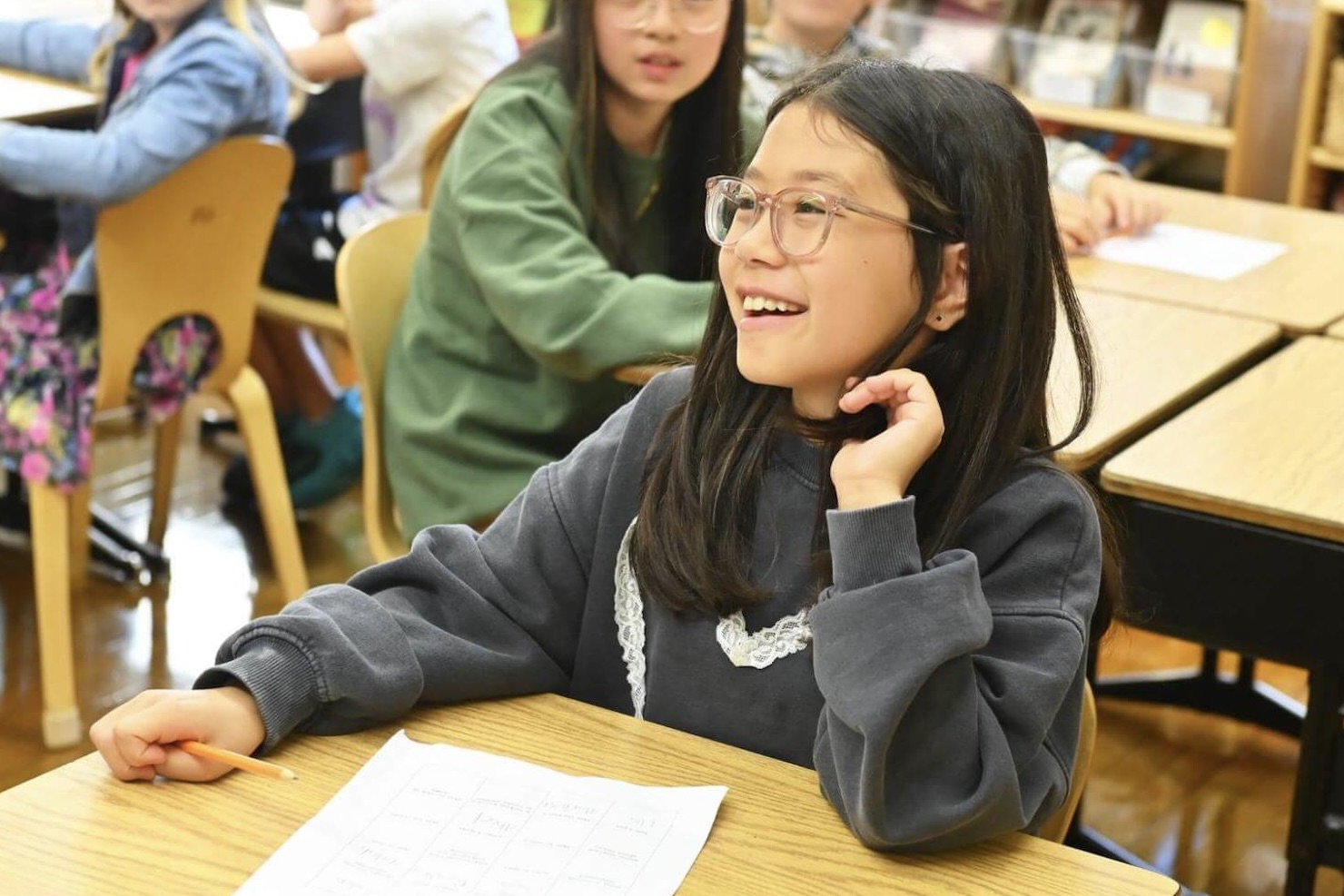
Fieldston Lower
At Fieldston Lower, we teach about being online by focusing on ethical principles that apply to all of our interactions, both in-person and digital. Our goal is to cultivate thoughtful, responsible digital citizens, ensuring that our shared values and critical thinking guide all of our students’ choices online. The conversation begins with understanding communication (verbal and non-verbal), personal boundaries, and consent.
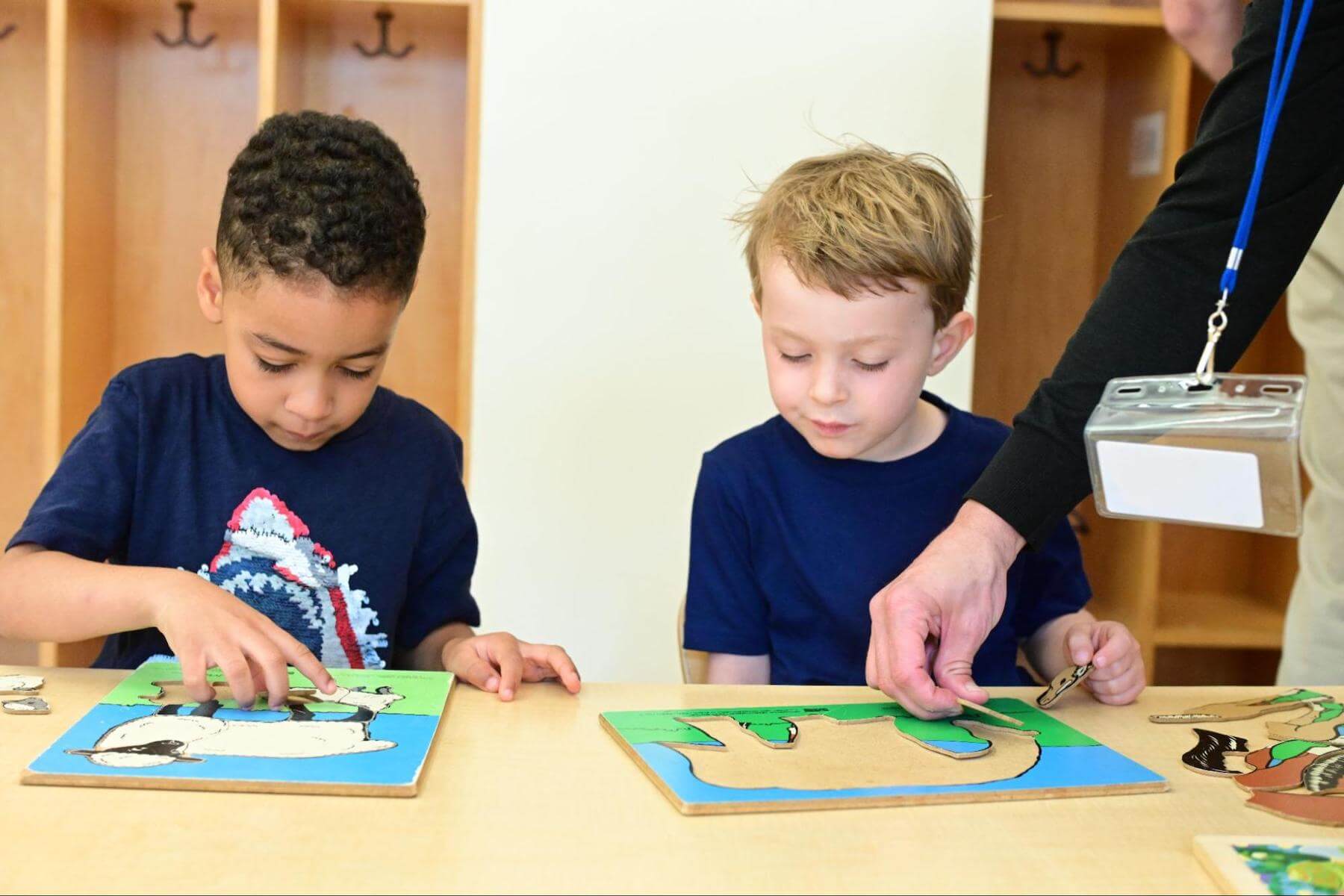
Starting in 4th Grade, students become experts on topics like Digital Footprints, Cyberbullying, and the fine print of Terms & Conditions. Using the knowledge they glean from these lessons, they work cooperatively to research and produce podcasts about important topics like privacy, our online representation, and personal agency. By focusing on these concepts that are integral to understanding our online world, we work to prepare students for a digital future where they know their personal boundaries and are respectful of others.
Three tips for continuing these conversations at home:
- Model asking permission: Before posting/sharing a photo of your child, ask “do you consent to me sharing this photo?” or “would you mind if I posted this picture of you?”
- Narrate your own digital choices: When you make a digital decision (such as reviewing privacy settings or declining an app’s request to use your location), say it out loud to your child and explain why. For example, “I’m going to turn off the location services for this game because I don’t think that information is something I want to share with this company.”
- Discuss information sharing with your child: Follow up on the conversations we have in class. Ask what information they may feel comfortable sharing with close friends versus casual acquaintances. If they play social games online, make sure they understand the people they play with are strangers. Ask them what kind of information is safe to share right now. This helps children to pause and categorize the relationship before oversharing.
— Kim Deveaux, Ethics and Technology Lead, and Matt Pedersen, Ethics Teacher, Fieldston Lower
Fieldston Middle
To be ethical is to strive to do the right thing for yourself, your community and the world, which now includes social media.
Social media platforms can be spaces with a lot of noise, whether our students are keeping up with friends, searching for information about a topic they love, encountering information they weren’t looking for, or scrolling through post after post.
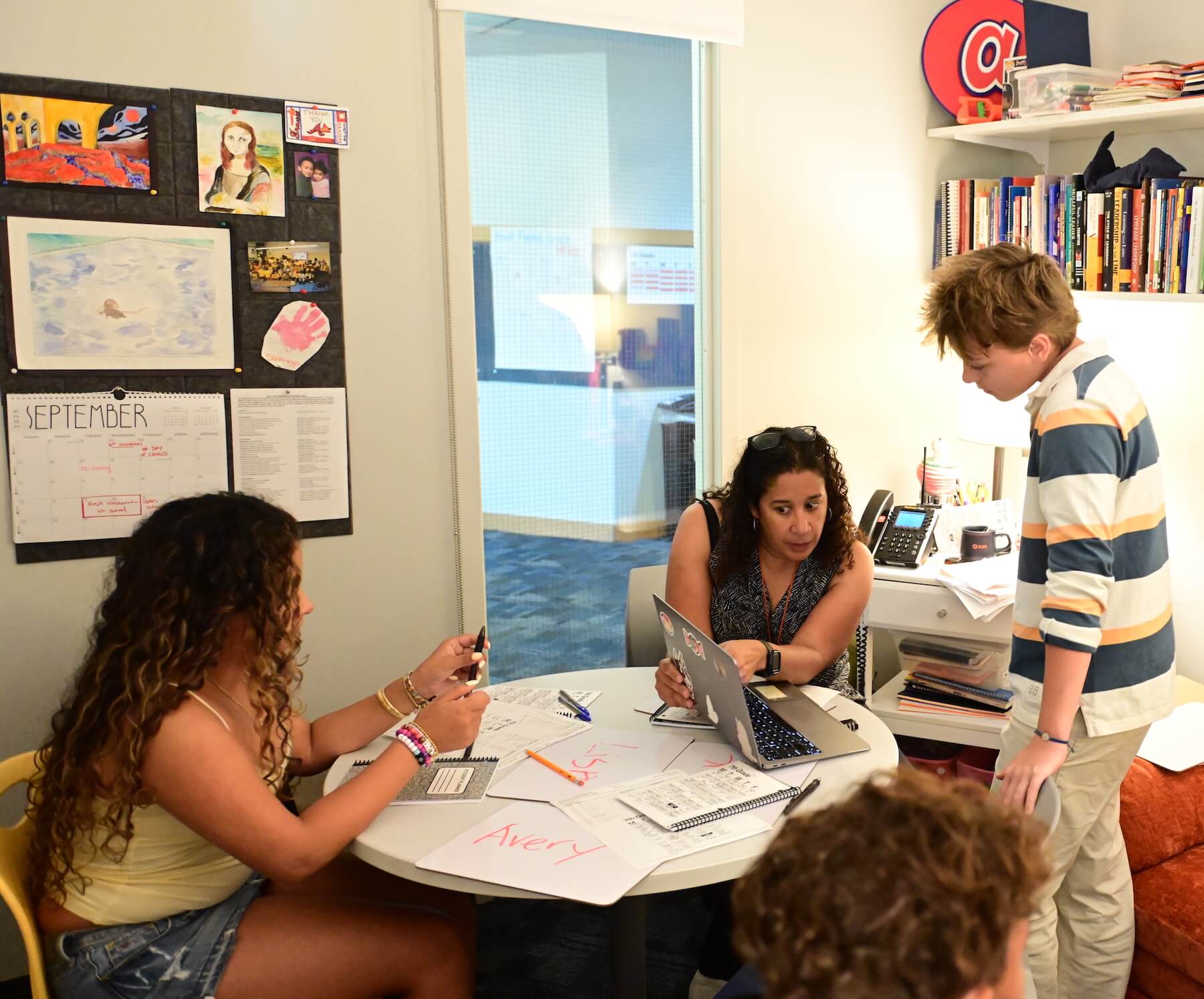
With so much more information available to us online than there ever has been, I encourage our middle school students to pay attention when the voice inside of them gets activated. We hope they’ll learn to understand that it’s important to turn the volume up on your conscience and that our inner voice might have important things to say about when to go forward and when to pause, when to hit send and when to delete. It could signal when something may be better dealt with in person, or with the help of a trusted adult, or with your own deep thinking.
I encourage students to take occasional breaks to notice whether they’re feeling better or worse after their interactions on social media. To navigate our world, we each have a voice inside of us that knows something about right and wrong. It’s important for students at the middle school age level to feel empowered to pay attention to that inner voice and to apply what they learn in ethics to their experiences with social media.
— Abena Koomson-Davis, Ethics Department Chair, Fieldston Middle, and Ethics Teacher, Fieldston Middle and Fieldston Upper
Fieldston Upper
Ethics plays an important role in informing how we use social media. To me, ethical usage means thinking critically about aspects of social media such as mental well-being and the ways it affects us as people and students. It may include setting boundaries on what or how much we consume online, and being thoughtful about how we communicate with each other. It is crucial to utilize empathy and consider the impact of the content we create and share.
The ethical frameworks we learn at Fieldston can be applied to how we approach social media. When navigating these areas, we can ask ourselves ethical questions surrounding morals, values, and emotions to guide our decisions. Media literacy is also essential; social media has a significant amount of misinformation so I encourage my peers to always be careful and question the authenticity of digital information.
— Andrew C. ’26, Fieldston Student Government Secretary of Technology
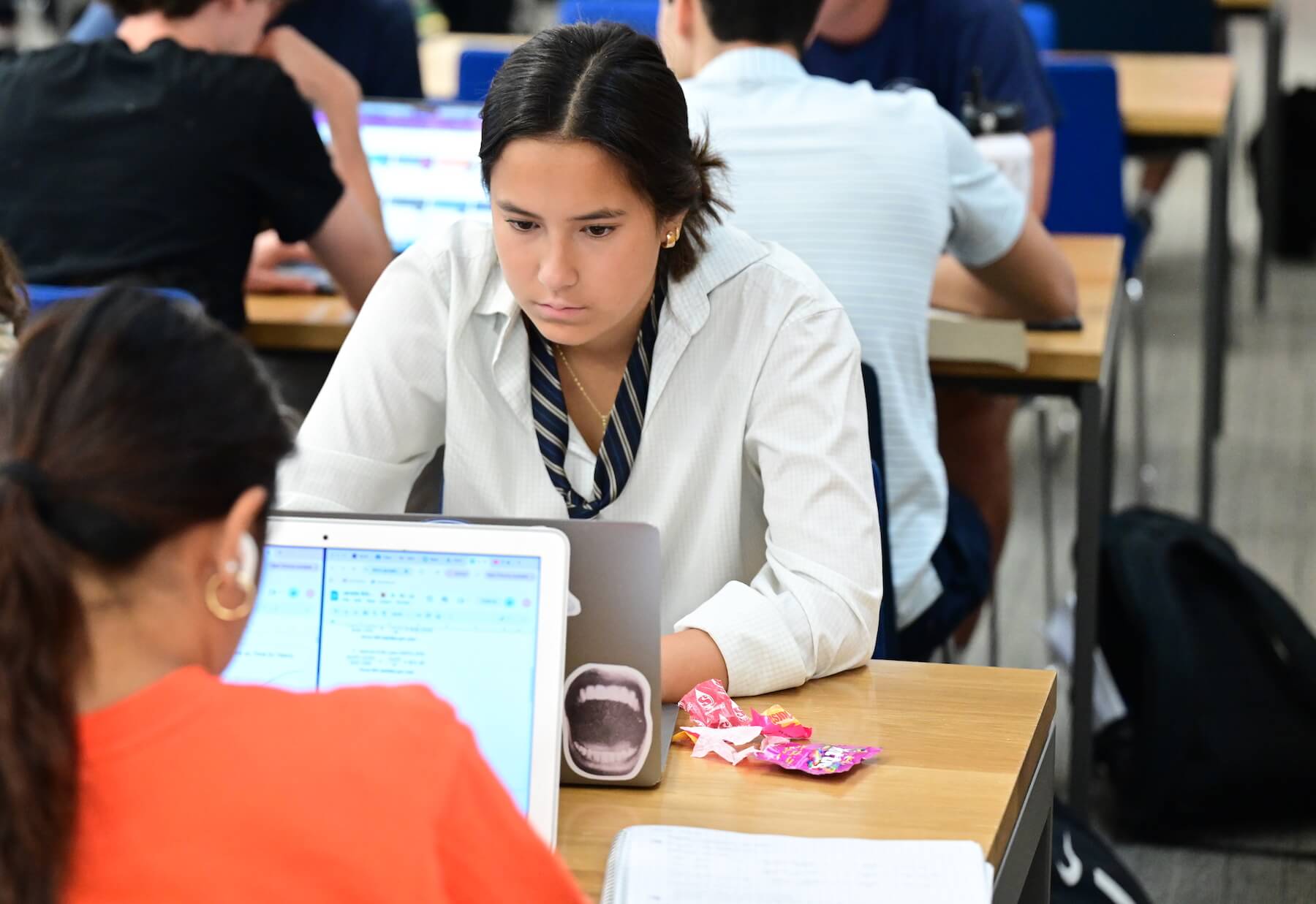
By the time that students reach Fieldston Upper, many of them socialize and develop their identity through social media. Even those who do not engage in social media are influenced by the trends and norms that trickle offline from the internet. Being online can be both joyful and informative, and deeply challenging.
We aim to empower our young people to be their best selves both in person and online, by teaching them to center Ethics as they navigate digital spaces.
In the pursuit of this goal, we aim to teach:
- Ethics in social media, focusing on helping students develop digital citizenship skills. We engage students in conversations about their digital footprint, and the role social media plays in their relationships and their understanding of self. Parents/guardians may consider asking, “Do you question the strength of a relationship if someone refuses to share their location with you?”, or “Why do you post what you post?”
- Ethics with social media, encouraging students to consider how and when social media can be used to advance ethical goals. We encourage students to reflect on the impact of their online actions and speech, and to consider when it is best to engage in person instead. Parents/guardians may ask, “What do you hope to achieve when you post or discuss your opinions in digital spaces?”, or “Why are you leveraging social media for your school club?”
- About ethics and social media, inviting students to step back and analyze social media itself through an ethical lens. We teach students to understand how technology’s design can influence behavior, shape discourse, and create moral dilemmas. Parents/guardians may consider asking, “How do you feel about your personal data being collected by social media platforms?”, or “How do you feel about social media apps adding their own AI chat feature?”
— Charlotte Selous, Ethics and Technology Lead and Ethics Teacher, Fieldston Upper
